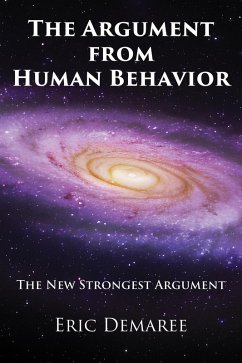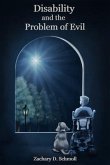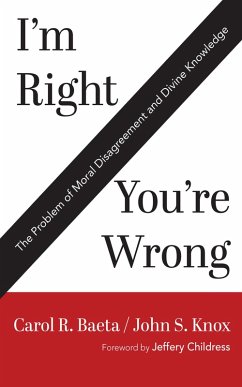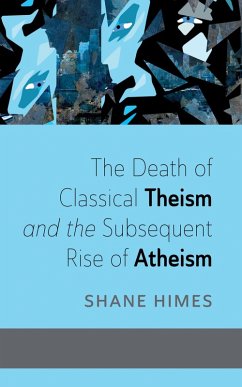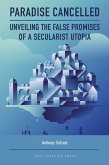The Ultimate Religious Argument The moral law in our minds against breaking promises would be an absurdity if God did not exist to enforce it! If God did not exist, there would be no moral lawgiver, no author of the moral laws in our minds and no enforcer of our moral laws, causing them to be unenforced absurdities. Consequently, if we did not have perceptions of God's existence in our minds, we would consider our sense of "wrong" an unenforced absurdity. The "Argument from Human Behavior" asks this important question, "Why do we all take at least part of our hard-to-live-by sense of "wrong" seriously, as if it were authored by God and enforced by God?!" This argument establishes that we (including martyrs) are able to achieve the "certainty unto death" that God exists through faith in our sense of "wrong." This Argument reveals that when we take our sense of "wrong" seriously, we behave as if we have perceptions of God's existence in our minds! This argument insists that we all behave as if we have perceptions of God's existence in our minds just as the Biblical God promises in Hebrews 10:16-This is the covenant I will make with them after those days, saith the Lord, I will put my laws into their hearts and in their minds will I write them. The template for the Argument from Human Behavior: Premise 1: If we take any part of our sense of "wrong" seriously, we have perceptions of God's existence in our minds. Premise 2: We all take at least part of our sense of "wrong" seriously. Conclusion: Therefore, we all have perceptions of God's existence in our minds. Corollary: Either an outlandish quirk of evolution put perceptions of God's existence into everyone's mind or God Himself did it. Explanations: Premise 2: Everyone behaves as if some type of lying or some type of cheating is seriously "wrong." Premise 1: No one, besides God, has the authority to decree anything "wrong." And no one besides God has the power to enforce every "wrong" action. Without God, our sense of "wrong" would be constantly evolving and unenforced. If we did not have perceptions of God's existence in our minds, we could, reasonably, only consider our sense of "wrong" an unenforced absurdity. Nonetheless, we are free to deny that God actually exists because of the possibility that evolution (or something else) put God's existence into everyone's mind. Even so, everyone who takes any part of his or her sense of "wrong" seriously, behaves as if God exists. We need faith in our eyes and other senses because it is not a logical necessity that our senses are telling us the truth. We also need to take a step of faith when we discover scientific facts! We need to take this step of faith because of the problem of induction, which is: No matter how many times a scientific experiment gives the same result, it is not a logical necessity that the next result will be the same. How do we "know," for example, the next slice of bread will nourish us, when it is not a logical necessity for it to do so? We just have faith that the next result will be the same. Therefore, every scientific fact that we have obtained through previous experiences depends on at least one step of faith. We all take hundreds of steps of faith every day when we trust our eyes, other senses and inductive reasoning to accurately reveal reality. Accordingly, it would be highly unreasonable not to take a step of faith and trust that our sense of "wrong" accurately reveals what actually exists-God! Do you really think there is any possibility at all that your sense of "wrong" could be an absurdity?!Think it over. Know thyself. Get your copy at the introductory price. Start reading NOW!
Dieser Download kann aus rechtlichen Gründen nur mit Rechnungsadresse in A, B, CY, CZ, D, DK, EW, E, FIN, F, GR, H, IRL, I, LT, L, LR, M, NL, PL, P, R, S, SLO, SK ausgeliefert werden.

